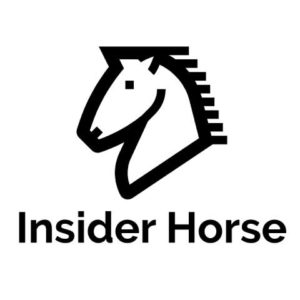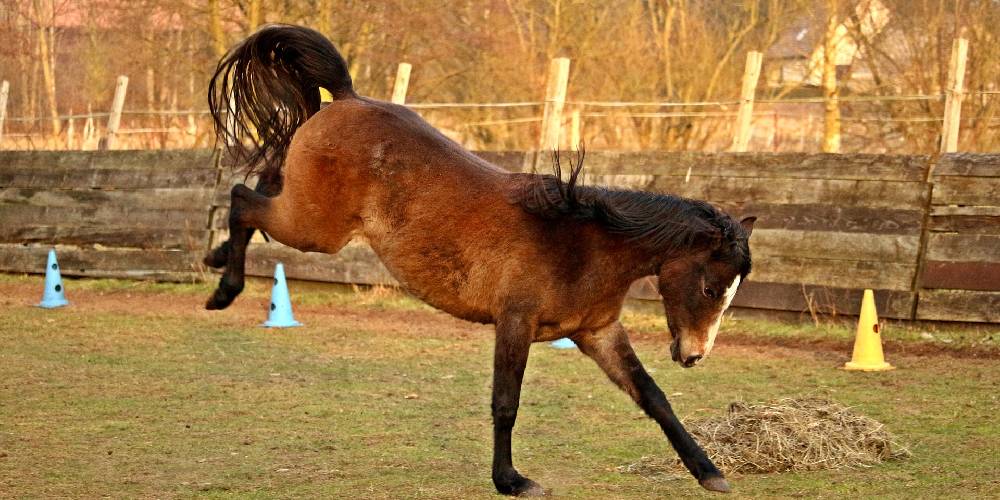Horses buck for a number of reasons, but why do they do it anyway? Is it because they are mad? Do they want to get rid of their rider?
Why Do Horses Buck?
Horses buck for many reasons. Some of the main reasons a horse might buck are because it feels good, has a lot of energy, is in pain, is angry, or is in a playful mood. When looking at horses bucking while carrying a rider, it can be that they want the rider off. In many cases, horses that aren’t yet broke to be ridden might feel that they are being attacked and feel they need to get rid of the person on their back to live.
The Reasons Why Horses Buck Explained
They Are Just Feeling Good or Playful
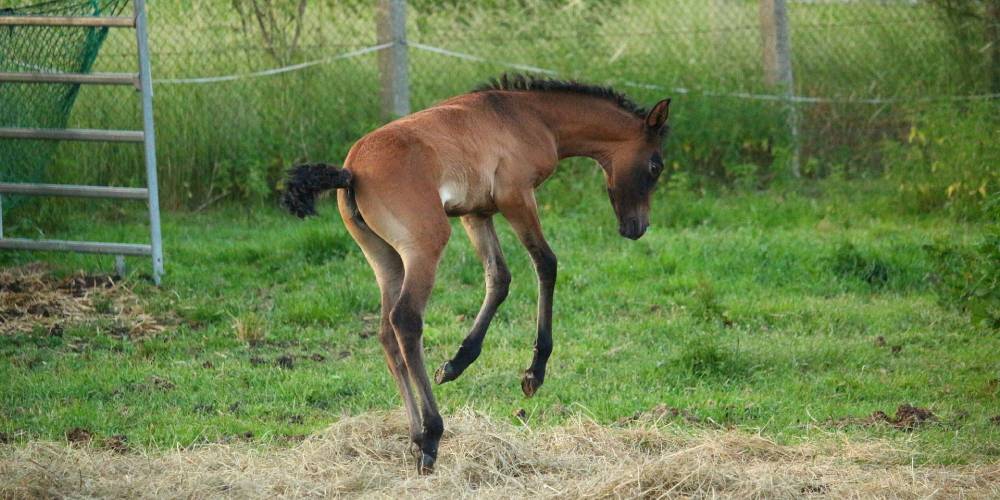
Horses when playing and running around might buck because they are having a good time. Horses buck mainly for this reason. When you are riding your horse and they are asking to go faster and begin to buck, it is often because they just have a lot of built up energy they want to burn.
When I would turn out my Arabians, they would take off at a gallop and when they would play together they would buck and keep running. This is really common and natural behavior for horses.
They Feel Threatened
Horses might begin to buck if they feel threatened. Many times, horses that aren’t yet broke to ride, will buck to rid themselves of a rider. Horses are naturally prey animals so their instinct is to buck the rider off and escape the ‘attack.’
This is why many wild horses are used in rodeos as bronc horses. These horses are already nervous and worked up in their pen because they are in an unfamiliar environment, so when they have a rider on them, they feel attacked and in danger. This is because they haven’t ever been ridden before and having a person who the horses aren’t familiar with climb aboard them makes for a scary experience on the horse’s end.
They Are In Pain
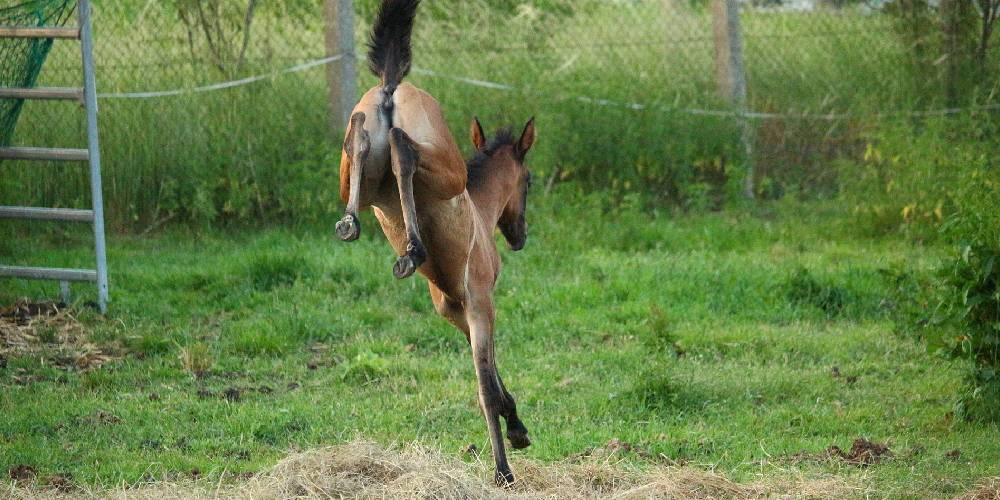
Horses might buck or kick out when they are in pain or feeling uncomfortable. A reason for this could be that a horse is reacting violently to colic.
If a horse has an injury and they can’t see the source of pain, they might feel that they are being attacked by a predator and their natural defense mechanisms kick in causing them to buck and kick out at an enemy or attacker that they think is there.
They Are Angry
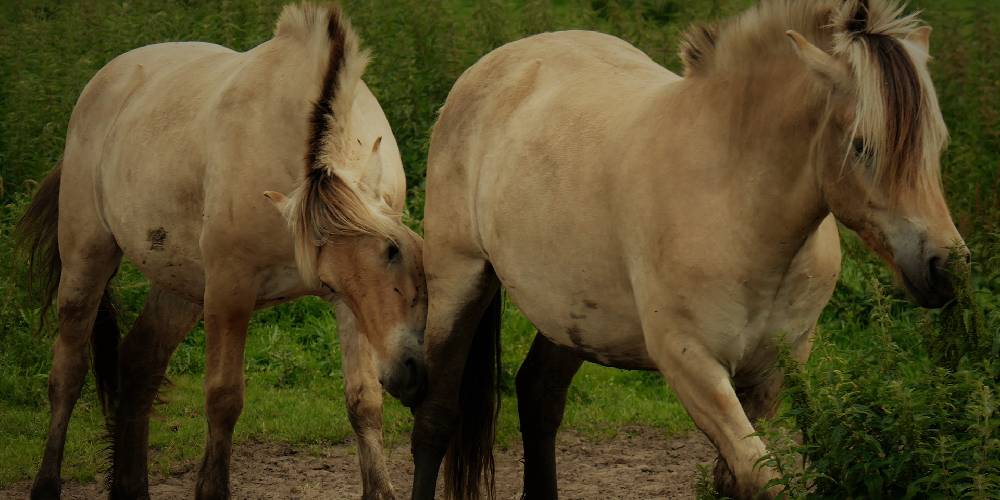
If someone is riding a horse and is being overly firm and putting too much strain on the mouth, or using too much spur, a horse may begin to get fed up, impatient, or even angry with the rider.
Horses will buck when they are angry with a rider to rid themselves of the nuisance on their backs. Sometimes this can become a bad habit for horses to get into and they might think that they can toss a rider whenever they want to.
When riding a horse, make sure that you are firm and have contact, but don’t be harsh or mean when guiding the horse around the arena. If you are riding and you feel the horse put his head down and is preparing to buck, pull the horse’s head back up and drive them forward with your heels to pull them out of the buck.
In the wild, a horse may buck at another horse that is pestering them or getting into their personal space. I saw this first hand with two horses in the turnouts at a barn I volunteer at. One of the horses would bite at the others hindquarters, and when the other horse that was getting bitten got fed up with it, he kicked out at the one that was biting him.
They Are In A Chaotic Environment
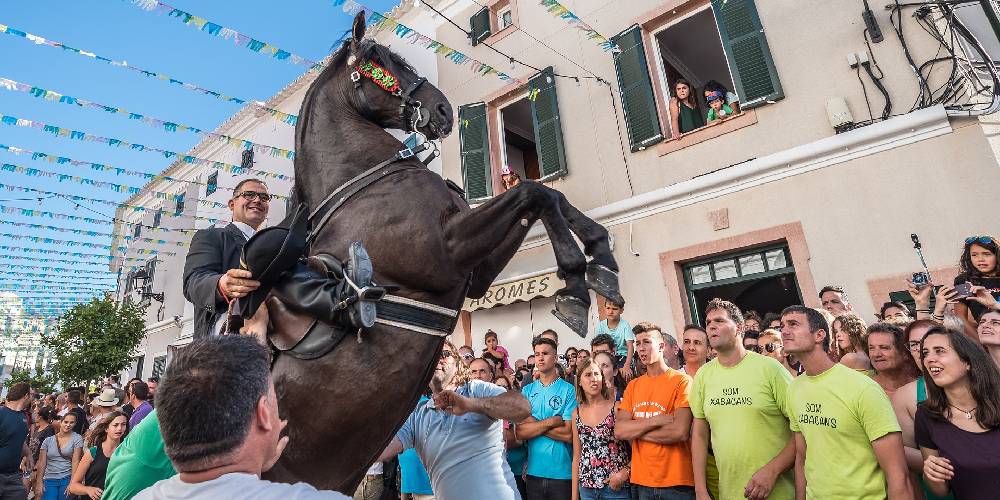
When horses enter a new environment, they are already worked up and alert. If a horse is at a place that is particularly chaotic, fast moving, noisy, or crowded, the horse may respond to this by bucking out of fear.
It is not uncommon for a horse to panic or fear entering a new area so bucking out of fear due to a chaotic environment is nothing new.
They Are Frustrated By Rider Error
A horse may buck due to the rider it is carrying. One of the most common reasons for a horse to buck is if the rider is giving the horse confusing messages that the horse doesn’t know how to respond to.
This goes hand-in-hand with the horse getting angry and bucking out of frustration with the rider.
They Are Refusing A Stallion
Mares that don’t want to breed with a stallion that is coming onto them will often respond by kicking out at the stallion to get him away from her. This is seen in both domesticated and wild horses. Mares that are not interested in reproducing with a stallion often will buck and kick to get him away from her.
Bronc Riding
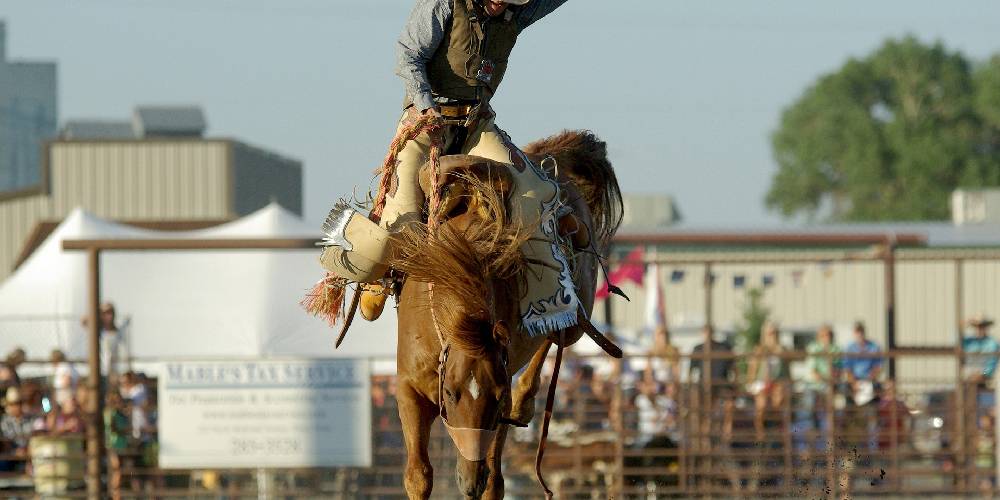
Bronc riding is a western sport that has been around for a very long time. The typical breed of horse used for bronc riding is an untrained Mustang. A Mustang is a wild warmblooded horse from North America that can vary in appearance.
There are typically two types of bronc riding. They are saddle-bronc which is when the horse has a western saddle on their back, or bareback where the horse doesn’t have any saddle at all.
When riding saddle-bronc, the horse wears a piece of equipment called the flank strap. In case you didn’t know, the flank of the horse is a very sensitive area, so putting a big strap around their ‘waist’ and over their flank causes them to try to buck to get it off. This, along with the rider, encourages the horse to buck and try to get the rider and strap off.
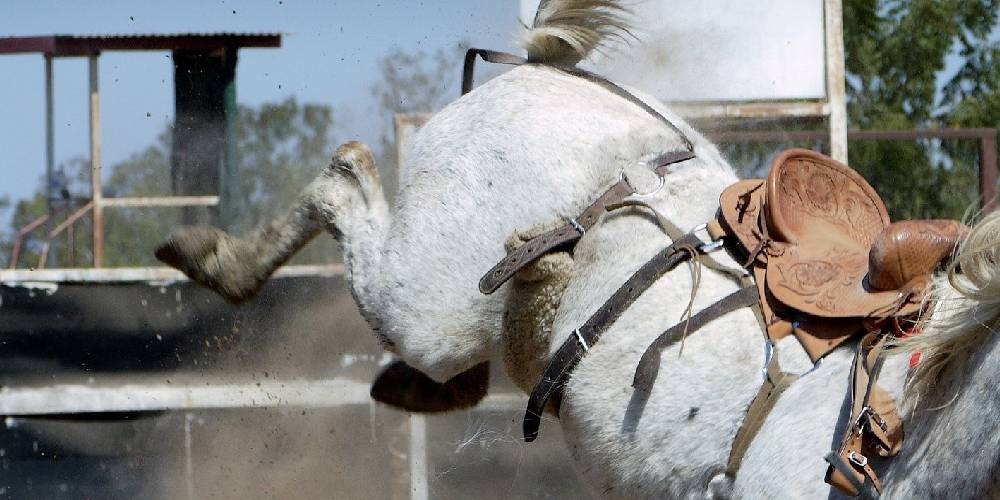
The same goes for bareback bronc riding. A flank strap is used to agitate the flank area and cause the horse to buck.
In bronc riding, the rider needs to stay astride the bucking horse for eight seconds for it to be considered a full ride.
In bronc riding, though mustangs are popular to use, any breed of horse can be used. The higher the buck, the more desirable the horse is for bronc riding and other rodeo events.
FAQs On Bucking Horses
Are bucking horses dangerous to ride?
Yes and no. If you are a beginner when it comes to riding, yes, a bucking horse is not a good horse to ride. This is because you might still be finding the horse’s rhythm and learning the basics. To ride a horse known to buck might not be the best idea when you are still a beginner.
If you are an advanced rider, yes it can still be dangerous depending on how hard the horse bucks, but for the most part, no, the horse should be okay to ride if you have the experience necessary to stay astride a bucking horse.
Is it a bad idea to buy a horse that bucks?
All horses are going to buck, this is just a natural thing for them to do. I would avoid a horse that bucks very hard and frequently because you will be put at more risk when riding. When looking at a horse that bucks here and there, I wouldn’t hesitate to buy the horse just because of that as all horses are going to buck at some point.
I can feel when my horse is about to buck, but I don’t know how to stop them from continuing through with the buck, any tips?
This is a problem that I even struggle with. You can feel the horse getting ready to buck and you can see them put their head down, but then you don’t know what to do and the horse bucks before you can stop them.
What I have learned is that when the horse begins to lower their head and is getting ready to buck, you should pull their head up and out of the buck first. It is more difficult for a horse to go through with a hard buck when their head is up rather than down.
The next thing you should do is drive them forward with your heels so they need to go forward rather than down and buck. Depending on the horse you may need to give them a kick or squeeze tightly with your legs and dig your heels into their sides. Every horse is different so adjust this technique to your unique mount!
